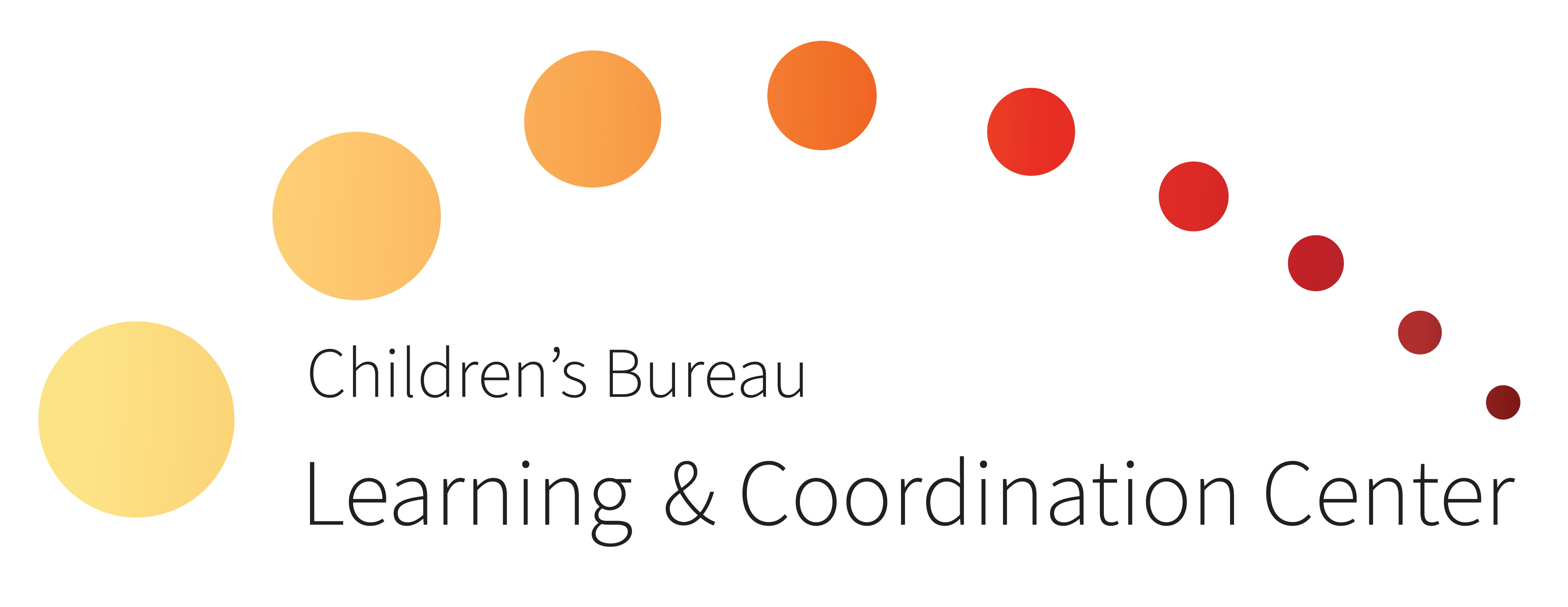Digital Dialogues and Webinars
Our Digital Dialogues provide an opportunity for participants to engage directly with one or more experts in key topics in the field. Each 45-minute discussion is accompanied by additional resources for exploring the issue more fully.
Recent Digital Dialogues

A Two-Generation Approach to Addressing the Mental Health Needs of Children and Youth
Watch our conversation with staff at Children's Wisconsin, a children's hospital system in Milwaukee with clinics statewide, who are collaborating with community support and behavioral health teams to build local mental wellness capacity. (59:46)

Keeping Families Connected: Supporting Parenting in the Context of Incarceration
Our conversation to explore strategies to support families dealing with the stress of the loss of a parent to incarceration. (47:03)

Building Brighter Futures: Helping Youth in Foster Care Successfully Transition to College
A conversation with Dr. Sebrena Jackson, founder of the National Social Work Enrichment Program (NSEP), giving youth in foster care the skills they need to not only survive in college, but thrive in life. (48:36)
Recorded Digital Dialogues and Webinars
Child Welfare Innovations
- NewBuilding Brighter Futures: Helping Youth in Foster Care Successfully Transition to College
M. Sebrena Jackson, PhD, LICSW, Associate Dean for Educational Programs and Student Services, University of Alabama
» A conversation with Dr. Sebrena Jackson, founder of the National Social Work Enrichment Program (NSEP), giving youth in foster care the skills they need to not only survive in college, but thrive in life.
- Building Birth and Foster Parent Relationships to Promote Reunification
Katie Biron (Family Connections Program), Shrounda Selivanoff (Children’s Home Society of Washington)
» Hear from two representatives of the Birth and Foster Parent Partnership (BFPP) as they share their experiences in building and supporting meaningful partnerships.
- Promoting Healthy Behaviors for Kinship Caregivers
Kerry Littlewood, PhD, MSW (University of South Florida)
» Kinship caregivers often prioritize their children’s needs before caring for their own, often delaying their own medical appointments and medication to purchase shoes for children, transportation, and food. Learn more about kinship caregiver health and an approach to working with kinship caregivers that emphasizes self-compassion and self-care. Created by a multi-disciplinary team of doctors and social workers, the Time for Me Toolkit helps peer navigators to support and provide psychoeducation to caregivers around six pillars of health management (Healthy Eating, Being Active, Healthy Sleep, Healthy Coping, Medical Adherence, and Self-Monitoring).
- Caring for Kinship Caregivers
Ana Beltran (Grandfamilies & Kinship Support Network), John Cheney Egan ( Office of Cash Assistance, Illinois Department of Family Services and the Extended Family Support Program), Liliana Hernandez (Children’s Bureau)
» In 2018, 2.7 million children were being raised in a kinship care family without a parent present – either with grandparents, aunts/uncles, siblings, or close family friends. While kinship caregivers provide essential support to children, many frequently need support to carry out this added responsibility effectively.
Engaging Communities
- Building Community Capacity to Support Perinatal Mental Health
Sara Winkleman, Washington State Department of Children, Youth, and Families
Mia Edidin, Perinatal Support Washington
» Perinatal mood and anxiety disorders are among the most common complications that occur in pregnancy or in the first 12 months after delivery. Yet despite the long-reaching negative impacts on parent-child attachment, child development, and financial stability, perinatal mental health (PMH) disorders often remain underdiagnosed, untreated, or under-treated.
- Community Approaches to Toxic Stress
Cailin O’Connor (Center for the Study of Social Policy)
» Explore a new framework of community approaches to toxic stress within the broader context of healthy development and well-being.
Families Impacted by Incarceration
- New Keeping Families Connected: Supporting Parenting in the Context of Incarceration
Rebecca J. Shlafer, PhD, MPH (Department of Pediatrics, University of Minnesota)
» Our conversation to explore strategies to support families dealing with the stress of the loss of a parent to incarceration.
- Keeping Strong Connections: Supporting Incarcerated Mothers and their Children
Carol Potok (Aid to Inmate Mothers)
» The Aid to Incarcerated Inmate Mothers program in Alabama helps incarcerated mothers and their children stay connected by providing education, facilitating visits, working with extended family, and supporting reunification once women leave prison.
Resilience and Well-Being
- NEWA Two-Generation Approach to Addressing the Mental Health Needs of Children and Youth
Courtney Towne, LCSW (Implementation Consultant, Triple P America), Jennifer Hammel (Director of Early Childhood Development & Trauma Informed Care, Children's Wisconsin), Jenny Walczak, PSYD (Clinical Director of Mental and Behavioral Health, Children's Wisconsin)
» Watch our conversation with staff at Children's Wisconsin, a children's hospital system in Milwaukee with clinics statewide, who are collaborating with community support and behavioral health teams to build local mental wellness capacity.
- The Science and Practice of Self-Regulation
» Over the past decade, our field has learned a lot about the brain science behind trauma, adversity, and stress. In this Digital Dialogue, we will be focusing on what the science tells us about resilience, healing, and self-regulation. Learn more about the brain's anatomy and practical tips for identifying restorative practices that work when your body is under stress.
Trauma and Healing
- Helping Children Heal: Stabilizing Adoption and Foster Care by Supporting Children and Youth with Behavioral Intervention
Kristin Chiappone (President, In-Home Behavioral Programs, FosterAdopt Connect)
» In this Digital Dialogue, we discussed how unresolved trauma impacts children and youth and how the Behavioral Interventionist program supports adoption and foster care stability.
- Supporting Children and Youth Dealing with the Loss of a Parent or Caregiver
Irwin Sandler, PhD (REACH Institute and Arizona State University), Deborah Langosch, PhD (GrandFamilies Outcome Workgroup (GrOW))
» The loss of a parent or caregiver can have cascading impacts on child well-being. The COVID-19 pandemic has placed a spotlight on the impact on these losses because of the more than 250,000 children who are estimated to have lost a caregiver due to the pandemic. Dealing with loss and adequately supporting a grieving child are issues that predate the pandemic and include children who have lost caregivers to the termination of parental rights, incarceration, and other issues. Come learn more about how to work with caregivers so they can best support a grieving child.
Workforce Support
- Preventing and Healing from Secondary Traumatic Stress: Taking an Organizational Approach
Aurora Smaldone (Maine Behavioral Healthcare), Dory Hacker (Maine Behavioral Healthcare), Rebecca Hoffman Frances (Maine Behavioral Healthcare)
» Maine Behavioral Healthcare is working with child and family-serving organizations across the state of Maine, implementing practices and protocols for workers experiencing secondary traumatic stress.
- Supporting Child Welfare Staff: The Critical First 3 Months
Alan O’Malley-Laursen (Olmsted County Child and Family Services, Rochester, MN), Cambria Rose Walsh (Chadwick Center for Children and Families at Rady Children’s Hospital)
» This Digital Dialogue details organizational strategies for orienting new staff to a trauma-exposed work environment and supporting them during those critical first 3 months.
- Workforce Well-Being—Centering Yourself to Better Support Others
Amelia Franck Meyer (Alia Innovations)
» Dr. Amelia Franck Meyer presents practical tips and tools for us to integrate well-being into our lives, our work, and our organizations to allow us to support those we serve in sustainable ways.

